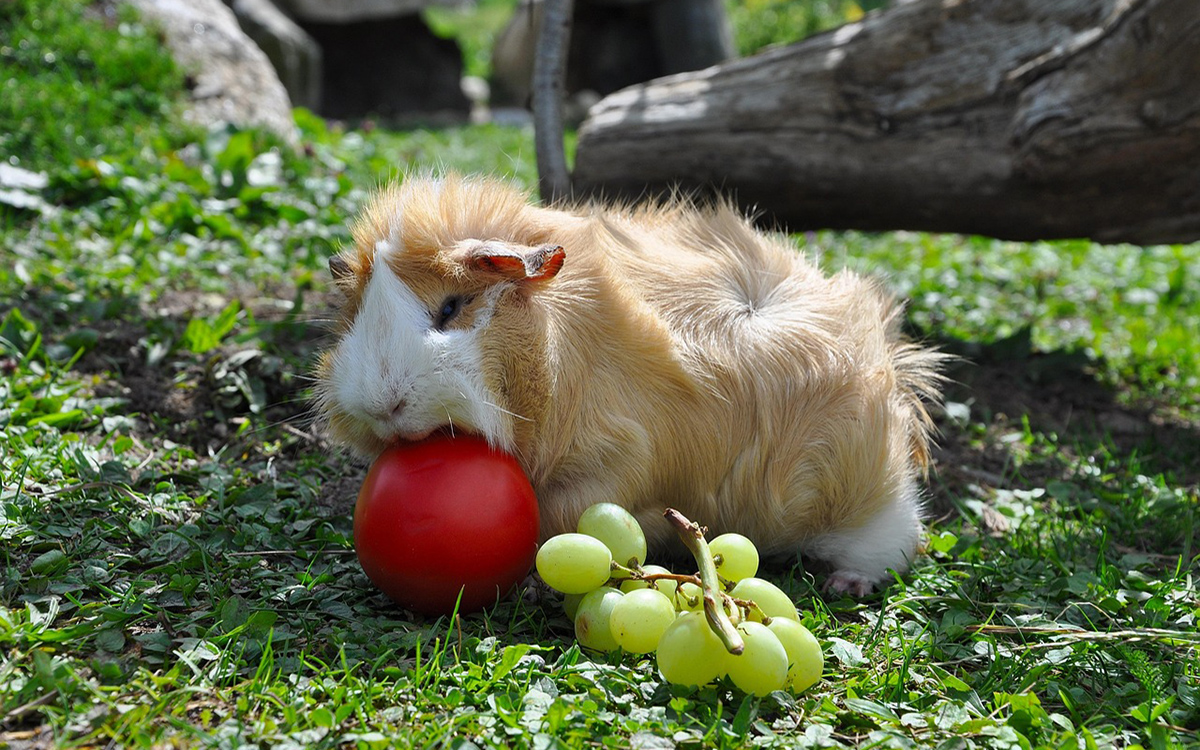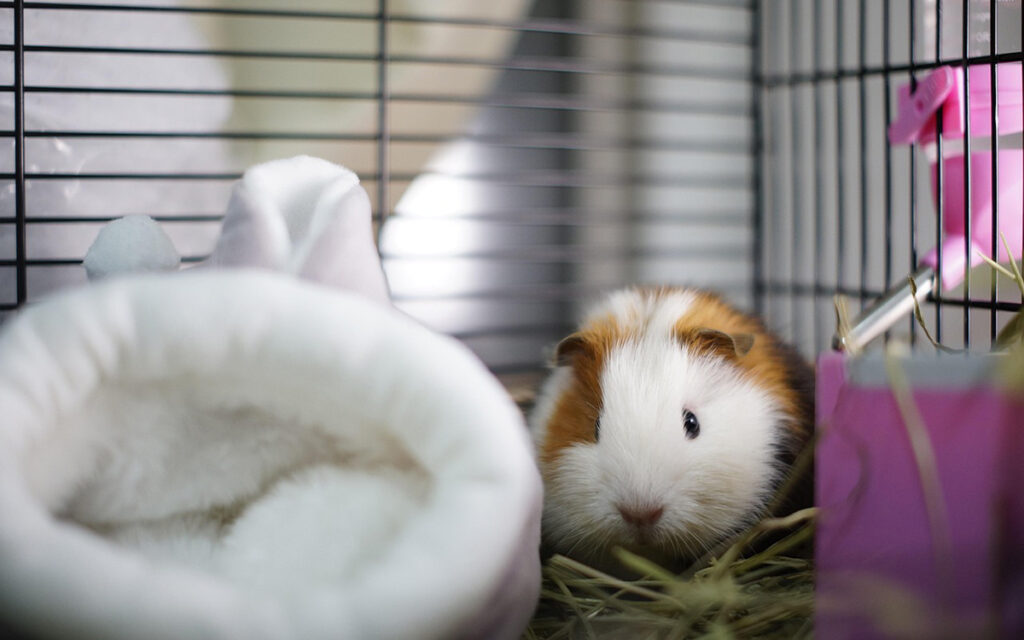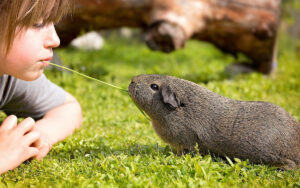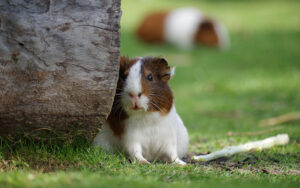Thinking about adding a guinea pig—or two—to your family? You’re in for a real treat. These little potato-shaped fluff balls are full of personality, surprisingly vocal, and, yes, a little demanding (in the cutest way possible). But before you bring home your future piggy BFFs, there is important information about guinea pigs you really need to know.
Guinea pigs are not your average low-maintenance starter pets. In fact, they need just as much love, attention, and prep as a dog or cat—just on a smaller scale. So, let’s talk about the real deal about how to take care of guinea pigs.

1. Guinea Pigs Are a Long-Term Relationship
First things first: if you’re looking for a quick pet fling, guinea pigs aren’t it. These little guys can live anywhere from 5 to 8 years—sometimes even longer with excellent care. That’s longer than a lot of people keep their cars! So before you fall in love at the pet store or shelter, make sure you’re ready for the long haul.
2. One Is the Loneliest Number
They are incredibly social. Guinea pigs in the wild (yes, their ancestors roamed the grasslands of South America), live in herds. So keeping one solo? Not cool. It’s like adopting one toddler and expecting them to entertain themselves forever.
The best setup? A same-sex pair (or more!). Just make sure they’re properly introduced and not opposite sexes unless you’re ready to open a guinea pig daycare.
3. Most “Guinea Pig Cages” Are Way Too Small
Here’s the harsh truth: the cages you’ll find at big-box pet stores are often glorified shoeboxes. Guinea pigs need floor space—like a lot of it. Think of them as tiny athletes who prefer wide open spaces over vertical climbing.
A good rule of thumb: at least 7.5 square feet for a pair, but more is always better. C&C cages (cube and coroplast setups) are a favorite among guinea pig parents and are super easy to DIY.

4. Yes, You’ll Be Cleaning—A Lot
Guinea pigs poop. A lot. And they don’t wait for “potty time.” You’ll need to spot-clean their bedding daily and do a full cage clean about once a week. Fresh hay, clean water, and scrubbed food bowls are a daily must.
If you’re looking for a low-mess solution, fleece liners are reusable, washable, and great for odor control when maintained properly.
5. Guinea Pigs May Be Small, But They’ve Got Opinions
Guinea pigs have an entire soundboard of squeaks, squeals, and chirps—and they’re not afraid to use it. One of the most iconic sounds? The “wheek,” which roughly translates to “Where’s my treat, human?!”
They also purr (yes, like cats!), which usually means they’re content. But beware the teeth chattering—that’s their version of a warning growl.
6. Taming Them Is Easier Than You Think
Sure, they might bolt under a hidey hut the first time they see you, but with time and patience, guinea pigs become very cuddly and affectionate companions. Most don’t bite, even when they’re nervous. Gentle handling, soft voices, and some leafy greens go a long way in building trust.

7. Vitamin C Isn’t Optional
Like humans, guinea pigs can’t make their own vitamin C. Without enough of it, they’re at risk for scurvy (yes, the same thing that plagued old-timey sailors). So it’s absolutely vital to feed them a diet that includes plenty of vitamin C.
Look for fortified pellets, and supplement with vitamin C tablets—not drops in the water, which lose potency quickly. Also, fresh veggies like bell peppers, parsley, and kale are excellent daily treats.
8. You Can Rescue One (or Two) Instead of Buying
Before you hit the pet store, check your local animal shelters and small pet rescues. You’d be shocked how many guinea pigs are surrendered each year due to misinformation or impulse buys.
Adopted guinea pigs often come already socialized and may even be bonded pairs—bonus!
9. They’re Basically Tiny Marathon Runners
Despite their tubby little bodies, guinea pigs are busybodies. They’re awake for most of the day (and night), and love to run, zoom, and popcorn (yes, that’s a thing—it’s like a joyful piggy jump).
That’s why cage space and daily “floor time” in a safe, enclosed area are so important. Just keep them off high surfaces—they don’t climb, and falls can be serious.
10. Hide-and-Seek Is Their Favorite Game
Guinea pigs are prey animals by nature, so they need places to hide in order to feel safe. You’ll want to add several hideouts to their cage—think huts, tunnels, and fleece pockets.
Pro tip: Rotate hideouts every so often to keep things interesting and enrich their environment.

11. They’re Curious… and Smart
With excellent hearing, strong sniffers, and panoramic vision (thanks to their wide-set eyes), guinea pigs are built for exploration. Give them new things to investigate regularly, like tunnels, cardboard boxes, or foraging toys that hide treats.
Mental stimulation is just as important as physical space when it comes to keeping them happy.
12. They’re Smarter Than You Think
Guinea pigs can learn their names, respond to voice tones, and even be trained to do simple tricks or use a litter tray (sort of—it’s more of a “preferred potty corner” than total success, but hey, we’ll take it).
Switching up their environment and introducing new activities regularly keeps boredom at bay.
13. Yes, They Need Grooming (But Not Like a Show Dog)
Most guinea pigs are pretty clean and only need the occasional bath—especially long-haired breeds like Peruvians or Texels. Use small animal shampoo, keep them warm and dry afterward, and never, ever use human products.
All piggies need their nails trimmed regularly, and long-haired breeds benefit from weekly brushing to avoid matting. Keeping their fur and skin healthy also helps prevent common health issues.
How Long Do Guinea Pigs Live In Captivity?
The lifespan for guinea pigs is generally 5 to 7 years in captivity, though some can live longer with excellent care.
A few things influence their lifespan:
- Breed: Some breeds, like the Abyssinian, may be more prone to certain health issues, while American guinea pigs tend to be a bit hardier.
- Diet: A balanced diet rich in vitamin C (since guinea pigs can’t produce it on their own), fresh hay, veggies, and high-quality pellets is essential.
- Environment: Clean, spacious cages with soft bedding and good ventilation reduce stress and illness.
- Healthcare: Regular vet checkups, prompt treatment of issues (like dental problems and respiratory infections), and parasite prevention extend life expectancy.
- Companionship & Enrichment: Guinea pigs are social animals—having a buddy and plenty of enrichment keeps them mentally and emotionally healthy, which contributes to longevity.
Some guinea pigs have even reached 8–10 years, though that’s more of an exception than the rule.
A Final Word on Guinea Pig Health
Guinea pigs are hardy little guys, but they are prone to a few common issues like:
- Scurvy (again, that pesky vitamin C thing)
- Dental problems (their teeth grow constantly)
- Respiratory infections
- Bumblefoot (sores on their feet from dirty bedding or wire cages)
- GI stasis and bloating (can be life-threatening)
Routine vet care, a clean environment, and a proper diet go a long way toward keeping them happy and healthy.
Bottom Line: Guinea pigs are sweet, smart, and full of charm—but they’re not “set it and forget it” pets. If you’re ready to give them the time, space, and love they deserve, they’ll reward you with years of joy, adorable squeaks, and maybe even a popcorn or two.

